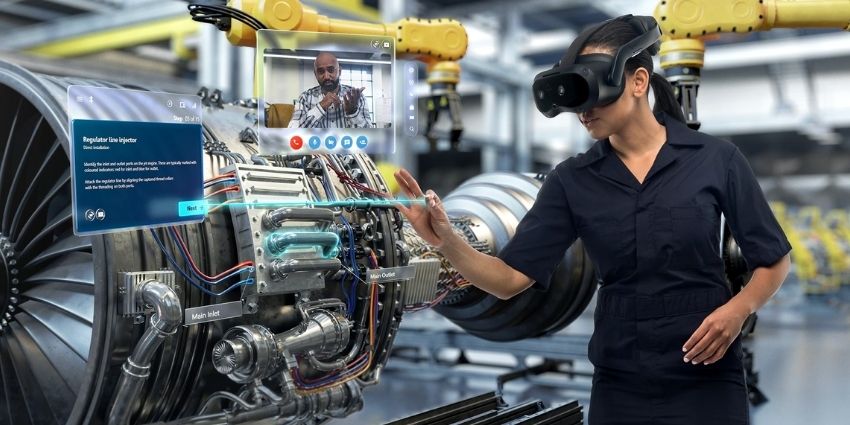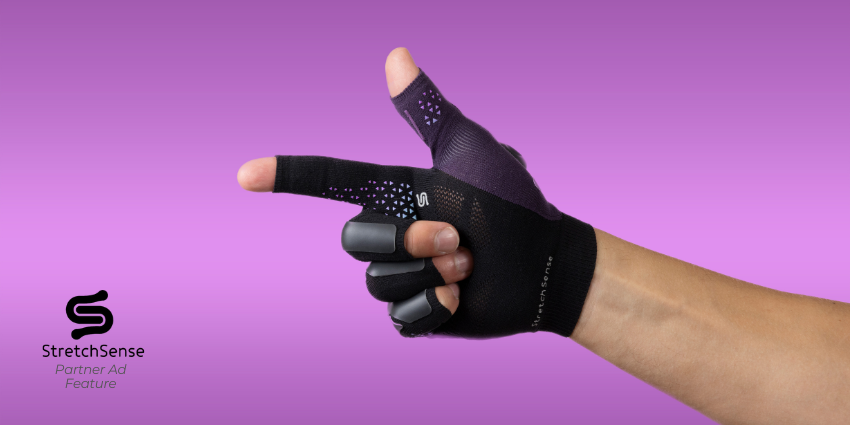HTC vs. competitors: Which XR vendor should you look at for the best enterprise-grade hardware? For years, HTC has held a strong position in the enterprise market, offering companies flexible, versatile, and ergonomic devices with premium-quality features.
Already, companies across industries are tapping into the benefits of HTC headsets, using them for everything from surgical training and patient care to team collaboration. However, while HTC headsets have a lot to offer businesses, there are plenty of other vendors worth considering, too.
Meta still leads the affordable headset market with solutions like the Meta Quest 3 and Quest 3S. In the premium headset space, Apple is revolutionizing sectors with spatial computing systems like the Vision Pro, while Varjo offers some of the world’s best VR and MR solutions for training, design, visualization, and simulation. So, how do you make the right choice?
HTC vs Competitors: Where HTC Stands Out
Like all XR devices, HTC’s headsets have their own unique list of pros and cons. For instance, not all HTC headsets come with the ultra-low price tag or vast app ecosystem you’d get from a company like Meta. Additionally, companies like Apple and Varjo do offer headsets with more impressive visuals and higher levels of processing power.
However, HTC’s devices also feature unique benefits that make them ideal for enterprise use cases. With HTC VIVE headsets, businesses get:
- Amazing Ergonomics: HTC invests heavily in comfort. Headsets like the VIVE Flow only weigh around 189 grams. More premium headsets, like the VIVE XR Elite, can also be customized with accessory packs (like the Deluxe pack), offering adjustable straps, custom face cushions, and clips to ensure ongoing stability.
- Visual Clarity: While some headsets, like the Apple Vision Pro, do offer stronger visuals, HTC’s VIVE headsets deliver great clarity, and a strong field-of-view, for a lower price. Some products, like the VIVE Focus 3, benefit from a 5K resolution, and 120-degree FOV, putting them neck-and-neck with some of the world’s most impressive headsets.
- Tracking Capabilities: Whether it’s eye tracking, full-face capture, or motion sensors, HTC does it all. Eye tracking is built into certain VIVE headsets for more intuitive user interactions, while add-on accessories like the VIVE Ultimate Tracker or VIVE Full Face Tracker capture precise body or facial movements.
- Exceptional Software: HTC also creates software solutions for enterprise use cases. Companies can take advantage of workflow solutions, like VIVE Desk, streaming systems, and even VIVERSE for metaverse creation. Plus, there are tools like VIVE Business+ for end-to-end device and app management.
HTC vs Competitors: Side by Side Comparison
Ultimately, HTC offers some of the best enterprise-grade XR headsets on the market. But in the HTC vs competitors debate, your decision on which vendor to choose will ultimately come down to what you’re looking for from an immersive experience.
HTC vs Apple
Apple has captured the attention of XR-focused companies worldwide with its premium-grade headset, the Apple Vision Pro. This revolutionary “spatial computing” system delivers some of the market’s best visuals, intuitive tracking capabilities, and mixed reality features. It also makes it easy for companies to access enterprise-grade apps with dedicated solutions for design, productivity, and even collaboration tools (like Zoom or Microsoft Teams).
High-quality HTC headsets, like the VIVE Focus 3, do give companies features like up to 5K resolution and exceptional real-time tracking capabilities. However, these headsets still aren’t quite as advanced as the Apple Vision Pro. The Vision Pro has a stronger display overall, though some HTC headsets do outperform this device in terms of “field of view.”
That being said, HTC’s enterprise-grade headsets are a lot more affordable than the Apple Vision Pro. Plus, HTC does offer a slightly broader range of enterprise-focused software and service solutions, like HTC VIVE+ Business Plus, for device management, and the VIVERSE ecosystem for no-code metaverse development and deployment.
Although Apple recently partnered with NVIDIA on a spatial computing streaming service, allowing it to compete with HTC’s solutions, like the “VIVE Streaming” service, it still doesn’t have a dedicated device management solution, or its own Metaverse platform.
HTC vs Meta
Meta is probably the biggest company in the consumer-grade XR market, thanks to its affordable headsets, like the Meta Quest 3 and the Meta Quest 3S. Meta also benefits from a massive app ecosystem, offering users access to thousands of apps through Meta Horizon OS and the opportunity to build and deploy custom applications.
Similar to HTC, Meta also offers dedicated software solutions and services to businesses. For instance, the Meta Quest for Business subscription plan gives companies dedicated support services, enterprise device management tools, and advanced security features. Plus, Meta’s Horizon Worlds solution allows companies to easily build metaverse environments, just like VIVERSE.
However, Meta’s headsets generally fall behind those of HTC VIVE regarding overall performance. Although some headsets, like the Quest 3 come with great visuals, and excellent processing power, they don’t always deliver the best field of view, or state-of-the-art tracking.
For example, Meta’s devices don’t support eye tracking features as standard, whereas many of HTC’s headsets, like the VIVE XR Elite, do. This could make HTC’s headsets a better choice for companies that want to invest in XR solutions that support immersive collaboration and robust expression tracking capabilities. Eye tracking features also allow for foveated rendering, reducing the risk of lag and latency in XR experiences.
HTC vs Varjo
In the battle of HTC vs competitors, Varjo is probably the company most organizations would consider when searching for high-end headsets. This company is well-known for delivering top-of-the-line, near-human-eye-resolution devices.
They target industries where detail and clarity are absolutely non-negotiable, like flight simulation, automotive design, and medical research. Varjo, like HTC, also experiments with software solutions regularly. The company introduced its Teleport solution – to help companies create digital twins for metaverse environments. Plus, Varjo’s headsets are compatible with most enterprise-grade software and XR development platforms (like Unreal Engine and Unity).
Varjo’s headsets offer a visual experience similar to that of premium devices from HTC VIVE. These devices have 4K+ resolution screens and a large field of view and come with built-in eye, hand, and object tracking technologies.
However, like Apple, Varjo charges a much higher premium for most of its XR headsets, making those devices less accessible to smaller companies with a limited budget. Plus, while Varjo does focus on ergonomic design, headsets like the Varjo XR-4 series devices are pretty bulky – making them less ideal for long-term wear and use.
HTC vs Competitors: Assessing Your Options
Deciding between HTC XR Solutions and those from Apple, Meta, or Varjo comes down to evaluating your specific business requirements. If your priority is a high-end mixed reality with minimal controllers and a polished user interface, Apple’s Vision Pro might be the best headset for your team. On the other hand, if you’re looking for premium-grade hardware and software and you’re not worried about budget, Varjo’s headsets might be a good pick.
On the other hand, for budget-conscious brands, Meta’s headsets still offer an affordable way to dive into the worlds of immersive training, collaboration, and customer service. Ultimately, HTC’s headsets are generally the best choice for companies that want great performance, flexibility, and comfort, without spending a fortune.
On top of that, HTC’s great selection of software systems and services makes it a great partner for businesses that want to build out their entire XR ecosystem. If you’re looking for not just headsets but also metaverse creation software and device management tools, HTC is a good choice.
Choosing the Right XR Vendor for Your Company
Settling on the perfect XR hardware isn’t always straightforward. Each competitor – Apple, Meta, Varjo – comes with its own pros and cons to consider. Overall, though, HTC is still a company well-worth considering if you’re looking for flexibility and versatility, at an affordable price.
Join our XR Community
Be part of a community that shapes the future of XR. Join thousands of like-minded professionals who share your passion for Extended Reality.







